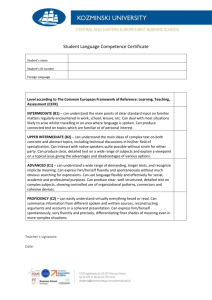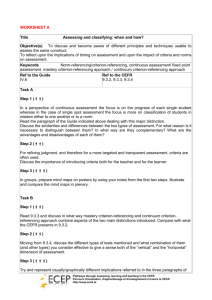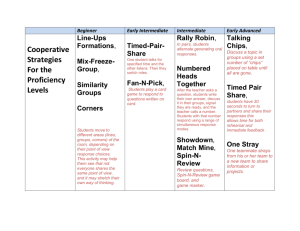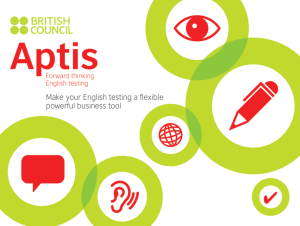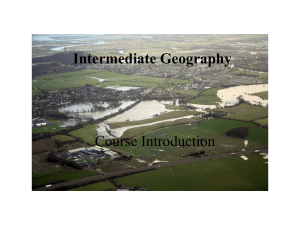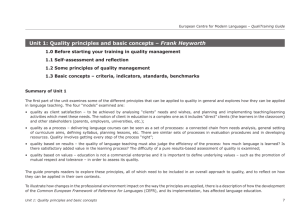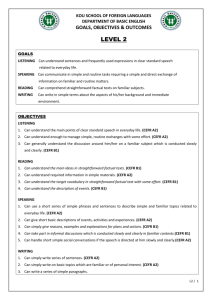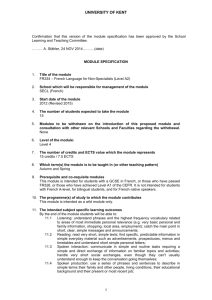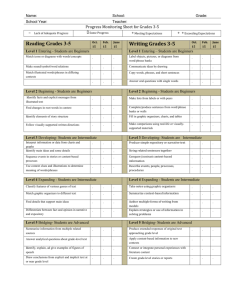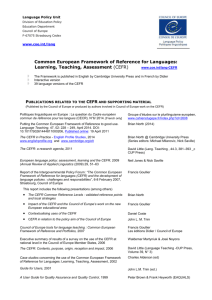What level am I?
advertisement
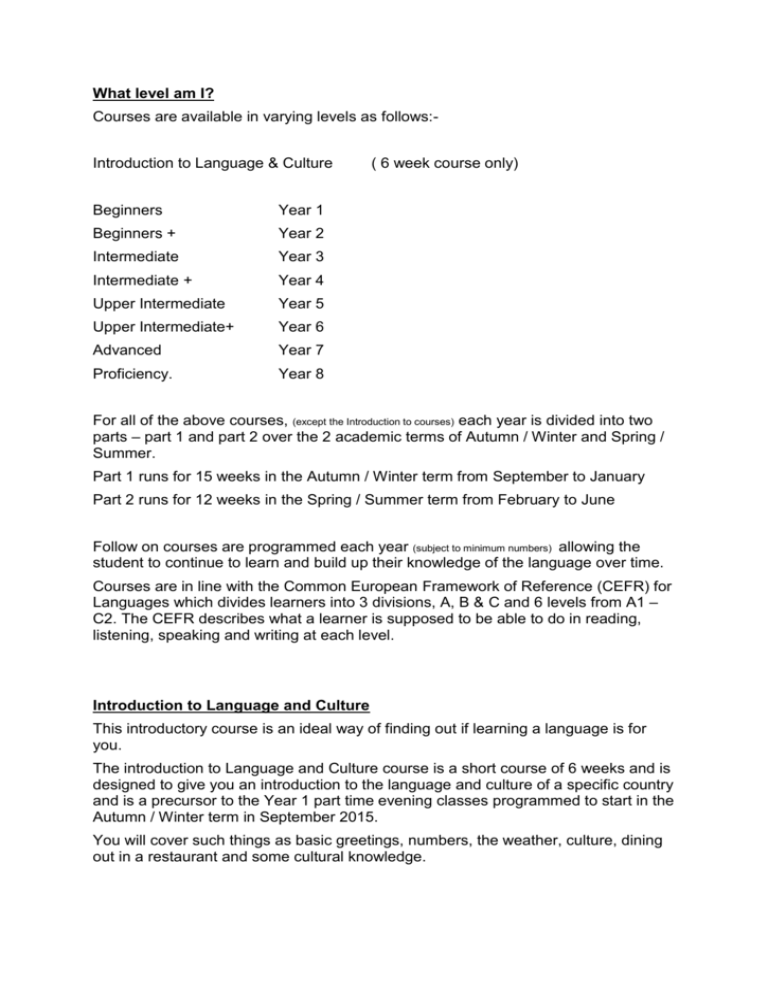
What level am I? Courses are available in varying levels as follows:Introduction to Language & Culture Beginners Year 1 Beginners + Year 2 Intermediate Year 3 Intermediate + Year 4 Upper Intermediate Year 5 Upper Intermediate+ Year 6 Advanced Year 7 Proficiency. Year 8 ( 6 week course only) For all of the above courses, (except the Introduction to courses) each year is divided into two parts – part 1 and part 2 over the 2 academic terms of Autumn / Winter and Spring / Summer. Part 1 runs for 15 weeks in the Autumn / Winter term from September to January Part 2 runs for 12 weeks in the Spring / Summer term from February to June Follow on courses are programmed each year (subject to minimum numbers) allowing the student to continue to learn and build up their knowledge of the language over time. Courses are in line with the Common European Framework of Reference (CEFR) for Languages which divides learners into 3 divisions, A, B & C and 6 levels from A1 – C2. The CEFR describes what a learner is supposed to be able to do in reading, listening, speaking and writing at each level. Introduction to Language and Culture This introductory course is an ideal way of finding out if learning a language is for you. The introduction to Language and Culture course is a short course of 6 weeks and is designed to give you an introduction to the language and culture of a specific country and is a precursor to the Year 1 part time evening classes programmed to start in the Autumn / Winter term in September 2015. You will cover such things as basic greetings, numbers, the weather, culture, dining out in a restaurant and some cultural knowledge. BEGINNER - year 1 Ideal for absolute beginners who have little or no knowledge of the language By the end of the beginner course you: Can understand and use familiar everyday expressions and very basic phrases aimed at the satisfaction of needs of a concrete type. Can introduce him/herself and others and can ask and answer questions about personal details such as where he/she lives, people he/she knows and things he/she has. Can interact in a simple way provided the other person talks slowly and clearly and is prepared to help. (A1 of CEFR) BEGINNER+ - Year 2 Follow on course from beginners, expanding vocabulary and basic communication By the end of the beginner + course you: Can understand sentences and frequently used expressions related to areas of most immediate relevance (e.g. very basic personal and family information, shopping, local geography, employment). Can communicate in simple and routine tasks requiring a simple and direct exchange of information on familiar and routine matters. Can describe in simple terms aspects of his/her background, immediate environment and matters in areas of immediate need. (A2 of CEFR) INTERMEDIATE - Year 3 Ideal for students who have studied the language in the past and want to refresh By the end of the intermediate course you will start to: can understand the main points of clear standard input on familiar matters regularly encountered in work, school, leisure, etc. can deal with most situations likely to arise while travelling in an area where the language is spoken. can produce simple connected text on topics that are familiar or of personal interest. can describe experiences and events, dreams, hopes and ambitions and briefly give reasons and explanations for opinions and plans. (B1 of CEFR) INTERMEDIATE + - Year 4 Ideal for students who have done “O” Levels / GCSE in the past and want to refresh and build upon their previous knowledge By the end of the intermediate + course you: can understand the main points of clear standard input on familiar matters regularly encountered in work, school, leisure, etc. can deal with most situations likely to arise while travelling in an area where the language is spoken. can produce simple connected text on topics that are familiar or of personal interest. can describe experiences and events, dreams, hopes and ambitions and briefly give reasons and explanations for opinions and plans. (B1 of CEFR) UPPER INTERMEDIATE - Year 5 Follow on course from Intermediate and building upon previous “O” Level / GCSE qualifications. By the end of the upper intermediate course you will start to: can understand the main ideas of complex text on both concrete and abstract topics, including technical discussions in his/her field of specialisation. can interact with a degree of fluency and spontaneity that makes regular interaction with native speakers quite possible without strain for either party. can produce clear, detailed text on a wide range of subjects and explain a viewpoint on a topical issue giving the advantages and disadvantages of various options. (B2 of CEFR) UPPER INTERMEDIATE+ - Year 6 Ideal for students who have an “A” Level and want to build upon that. By the end of the upper intermediate + course you: Can understand the main ideas of complex text on both concrete and abstract topics, including technical discussions in his/her field of specialisation. Can interact with a degree of fluency and spontaneity that makes regular interaction with native speakers quite possible without strain for either party. Can produce clear, detailed text on a wide range of subjects and explain a viewpoint on a topical issue giving the advantages and disadvantages of various options. (B2 of CEFR) ADVANCED - Year 7 Ideal for students who want to build upon previous qualifications such as “A” level or a degree. By the end of the advanced course you: Can understand a wide range of demanding, longer texts, and recognise implicit meaning. Can express ideas fluently and spontaneously without much obvious searching for expressions. Can use language flexibly and effectively for social, academic and professional purposes. Can produce clear, well-structured, detailed text on complex subjects, showing controlled use of organisational patterns, connectors and cohesive devices. C1 of CEFR PROFICIENCY - Year 8 Ideal for students who consider themselves quite fluent but want to “top up”. By the end of the proficiency course you: Can understand with ease virtually everything heard or read. Can summarise information from different spoken and written sources, reconstructing arguments and accounts in a coherent presentation. Can express him/herself spontaneously, very fluently and precisely, differentiating finer shades of meaning even in the most complex situations. (C2 of CEFR)
